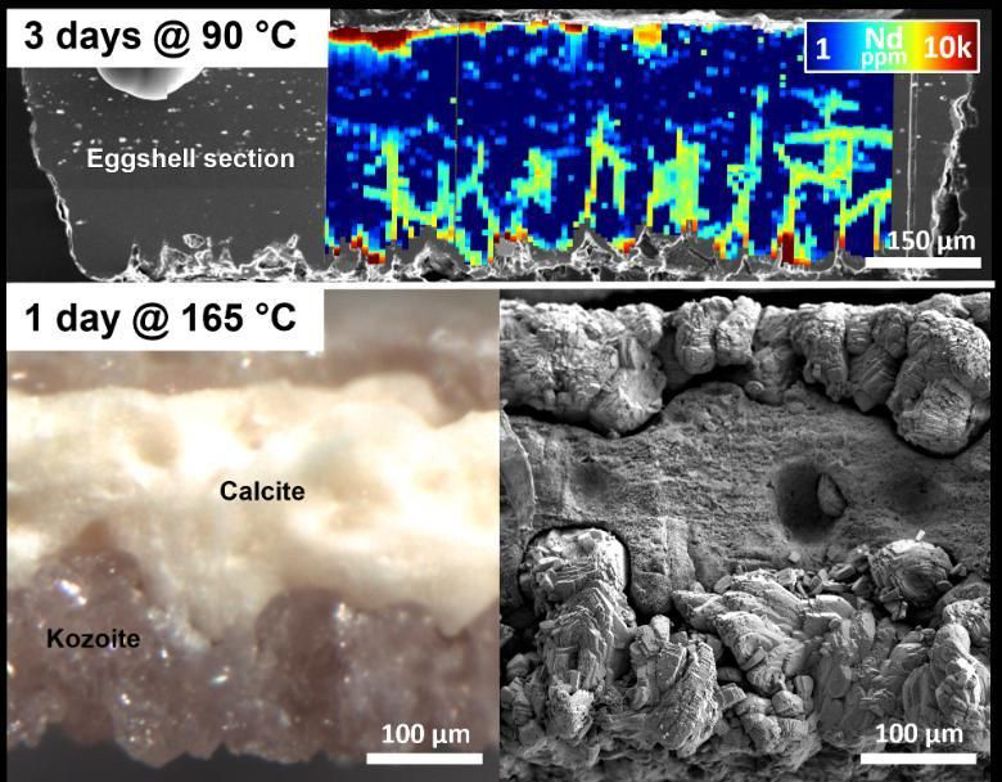Rare earth elements (REEs) are in increasing demand across the energy transition, forming vital components in technology such as electric cars and wind turbines. As a result, new methods of harvesting REEs from the environment are welcome, particularly when the conduit is a waste material and the process has a low carbon impact.
Related content
The researchers, from Trinity College Dublin’s School of Natural Sciences and the Irish Centre for Research in Applied Geosciences (iCRAG), proposed that the calcium carbonate (calcite) in eggshells could effectively absorb and separate valuable REEs from water.
They placed eggshells in solutions containing REEs at various temperatures from 25°C to 205°C, for different time periods of up to three months. It was found that the elements could enter the eggshells via diffusion along the calcite boundaries and the organic matrix and, at higher temperatures, that the REEs built new minerals on the eggshell surface. The work is published in ACS Omega.
“This study presents a potential innovative use of waste material that not only offers a sustainable solution to the problem of rare earth element recovery but also aligns with the principles of circular economy and waste valorisation,” lead author Dr Remi Rateau said in a statement.

At 90 °C, the eggshell surface helped recover formations of a rare earth compound called kozoite. At higher temperatures the eggshells underwent a complete transformation, with the calcite shells dissolving and being replaced by polycrystalline kozoite. And at the highest temperature of 205°C, this mineral gradually transitioned into bastnasite, a stable rare earth carbonate mineral used by industry to extract REEs for technology applications.
“By transforming eggshell waste into a valuable resource for rare earth recovery, we address critical environmental concerns associated with traditional extraction methods and contribute to the development of greener technologies,” said Prof Juan Diego Rodriguez-Blanco, the study’s principal investigator.
Visit our jobs site https://jobs.theengineer.co.uk/ to find out about some of the latest career opportunities at industry's biggest employers











IET sounds warning on AI doll trend
I agree that we need to reduce cooling water demand for servers. And yes, generative AI consumes a large amount. But what about BitCoins? Their...